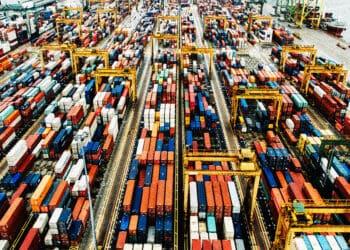Human rights violations in business, particularly in the form of human trafficking, modern-day slavery and forced labor, have always been an important issue for executives responsible for corporate compliance. However, the lack of internationally-binding legislation on human rights issues means that the effort to eradicate such violations in the private sector is full of challenges and setbacks.
This is critical because companies are responsible not only for their own integrity and ethics, but also for acts of their third parties. A company that uses suppliers engaged in actions such as bonded, forced migrant or child labor or human trafficking could sustain significant fines and reputational damage.
Efforts to Combat Human Trafficking Globally
The United States Department of State’s 2015 Trafficking in Persons Report confirms that efforts to combat human trafficking around the world have advanced steadily over the last 15 years, particularly since the adoption of the United Nations’ Protocol to Prevent, Suppress and Punish Trafficking in Persons and the passage of the Trafficking Victims Protection Act in 2000 by the U.S. State Department.
Despite such progress, the fight against human trafficking continues. It exists in formal and informal labor markets of both lawful and illicit industries, and it affects skilled and unskilled workers from a spectrum of educational backgrounds.
Traffickers target vulnerable workers to fill labor shortages anywhere along a supply chain. In the electronics sector, for example, human trafficking may exist in the extractive stages (mining for raw materials), in the component manufacturing stage (where separate pieces are produced or combined) and in the production stage (where goods are assembled and packaged in a factory).
Many of the more serious cases of human rights violations in business take place in the supply chains of corporations across multiple industries – from forced labor on construction sites and human trafficking on product lines to child labor in manufacturing plants. Different countries have therefore enacted laws setting certain human rights standards for companies to follow.
The 2010 California Transparency in Supply Chains Act in the United States and the 2015 Modern Slavery Act in the U.K. are two prominent examples. Also in the United States, amendments to the Federal Acquisition Regulation – aiming to eliminate trafficking within the supply chains of government contractors – were passed and became comprehensive enough to cope with the various issues surrounding human rights violations in the private sector.
In an attempt to take a bold step forward in tackling human rights violations in the supply chains of the commercial sector, the United States introduced in July 2015 a new bill called the Business Supply Chain Transparency on Trafficking and Slavery Act. The bill is a proposed amendment of Section 13 of the Securities Exchange Act of 1934. In a nutshell, it advocates the requirement of publicly-traded companies to disclose policies and efforts aimed at ridding their supply chains of slavery and human trafficking more broadly and specifically.
This new bill suggests that the U.S. government is taking a broader and stronger stance on addressing adverse human rights issues in commercial corporate operations. Should the Act be passed, companies that do not take action to combat labor abuse will still be obligated to disclose that they adopt no relevant policies, and, in doing so, could invite negative implications for their reputation.
Steps to Address Human Trafficking
Responsibility for addressing human trafficking in supply chains falls on everyone – from governments to the private sector to individuals. Beyond the efforts of governments and individuals, companies have an opportunity to lead in this area by respecting the rights of those who work to make their business successful.
The following are steps companies should take to effectively manage the risks inherent with suppliers:
- Understand your supply chain
- Validate and review supplier categories for certain risk at least annually
- Collect information from suppliers on high-risk areas
- Conduct due diligence
- Invest in helping your suppliers
- Seek certifications from suppliers
- Document and communicate your policies on human trafficking
- Train your people on what to look for
- Conduct real audits
- Investigate
- Report
In order to better understand the often difficult conditions under which many employees work, companies should also work with government officials, non-governmental organizations and recruiters in the country where they source.
According to the U.S. Trafficking in Persons Report, a clear and comprehensive anti-trafficking policy should:
- Prohibit human trafficking and those activities that facilitate it – including charging workers recruitment fees, contract fraud and document retention
- Respond to industry- or region-specific risks
- Require freedom of movement for workers
- Pay all employees at least the minimum wage in all countries of operation, preferably a living wage
- Include a grievance mechanism and whistleblower protections
- Apply to direct employees as well as subcontractors, labor recruiters and other business partners
- Include an enforcement mechanism that is applied throughout the company’s supply chain
Securing the approval and buy-in of senior executives is vital to the successful promotion of policies on human trafficking. The more proactive they can be, the more certain employees, business partners, investors and consumers can be that human trafficking will not be tolerated by the company.
To secure buy-in and help the company gain control, senior executives should understand how supply chains operate, where key suppliers are located and what working conditions exist in those locations and sectors. This requires the completion of a risk assessment, after which companies can then address problem areas, implement corrective measures and monitor and enforce anti-trafficking policies. One way to do this is through the use of consultants who are experts in this area.
Conclusion
Rights violations should be viewed as a potentially huge reputational and operational risk for many companies, particularly those in manufacturing-oriented industries. It is still highly recommended for companies to conduct relevant compliance framework reviews and policy checks to the extent that they are able.
The proposed U.S. bill for the Business Supply Chain Transparency on Trafficking and Slavery Act is indicative of a global trend of the public sector focusing more on preventing human rights violations. Companies are therefore advised to take the first step to enhance their compliance frameworks and implementations. Businesses that do not take any action to combat labor abuse will still be obligated to disclose that they adopt no relevant policies, and could risk their reputation as a result.














